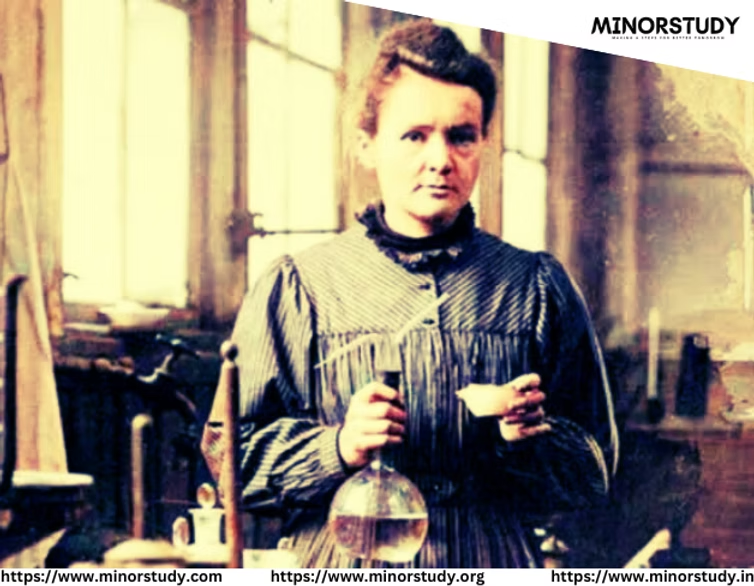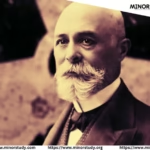Marie Sklodowska-Curie: Pioneer of Radioactivity
Full Name: Maria Salomea Skłodowska-Curie Born: November 7, 1867, Warsaw, Poland Died: July 4, 1934, Sancellemoz, France Nationality: Polish and French Fields: Physics, Chemistry Known For: Discoveries of Polonium and Radium, Research in Radioactivity Awards:
Nobel Prize in Chemistry (1911) (sole recipient)
About Marie Sklodowska-Curie
Marie Sklodowska-Curie was a trailblazing scientist whose work reshaped the understanding of radioactivity, a term she coined. She was the first woman to win a Nobel Prize, the first person to win Nobel Prizes in two different scientific fields, and a pioneering figure for women in science. Her discoveries of radium and polonium revolutionized physics and chemistry and paved the way for advances in medicine and energy.
Major Contributions
Discovery of Radioactivity: Building on the work of Henri Becquerel, Marie and Pierre Curie discovered that certain elements, such as uranium, emitted energy naturally, which they called radioactivity.
Discovery of Polonium and Radium:
Polonium (1898): Named after Marie’s homeland of Poland.
Radium (1898): Known for its intense radioactivity, which they extracted from pitchblende.
Development of Medical Applications: Her research enabled the use of radioactive isotopes in treating cancer (radiotherapy).
Historical Significance
Marie Curie’s research provided a deeper understanding of atomic structure and natural elements, leading to the birth of modern nuclear science. Her work directly impacted medicine, energy, and even military applications like nuclear weapons.
Timeline
1867: Born in Warsaw, Poland.
1891: Moved to Paris to study at the Sorbonne.
1895: Married Pierre Curie, her research partner.
1898: Discovered polonium and radium.
1903: Shared the Nobel Prize in Physics with Pierre Curie and Henri Becquerel for their work on radioactivity.
1911: Won the Nobel Prize in Chemistry for her discoveries of radium and polonium.
1934: Passed away due to aplastic anemia caused by prolonged exposure to radiation.
Interesting Facts
First of Her Kind: Marie Curie was the first woman to win a Nobel Prize and remains the only woman to win in two scientific fields.
Legacy in Units: The element Curium (Cm) and the SI unit of radioactivity, Curie (Ci), are named after her.
Portable X-rays in WWI: She developed mobile X-ray units to assist soldiers during World War I, saving countless lives.
Radiation Exposure: Her intense exposure to radioactive materials, in an era without safety protocols, led to her death from aplastic anemia.
Why Is Marie Curie Important?
Marie Curie’s groundbreaking work challenged the male-dominated scientific community of her time, proving that women could achieve excellence in science. Her research on radioactivity has had lasting impacts on physics, chemistry, medicine, and nuclear technology.
Legacy and Impact
Scientific Advancement: Her work inspired the study of atomic structure and nuclear energy.
Medical Breakthroughs: She laid the groundwork for radiation therapy, which treats millions of cancer patients annually.
Women in Science: Marie Curie became a symbol of women’s potential in STEM fields, inspiring generations of female scientists.
Famous Quotes
“One never notices what has been done; one can only see what remains to be done.”
“I am among those who think that science has great beauty.”
“Be less curious about people and more curious about ideas.”
Blessings to Society
Marie Curie’s discoveries transformed humanity’s understanding of the atom and opened new frontiers in medicine and energy. Her pioneering work saved lives, advanced technology, and continues to inspire scientists worldwide.
Significance and Observance
Marie Curie is celebrated for her immense contributions to science and humanity. Her achievements are honored globally, especially on her birth anniversary, November 7, which is often marked by events promoting women in STEM.









Would you be occupied with exchanging links?